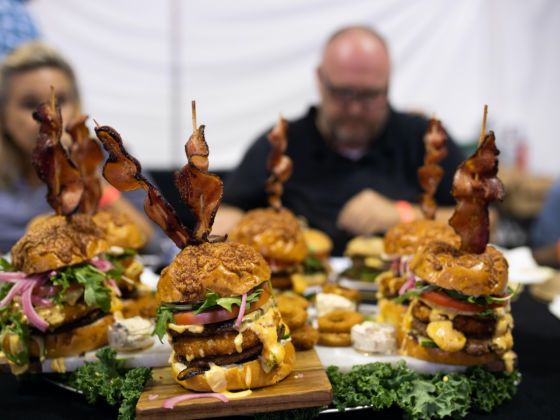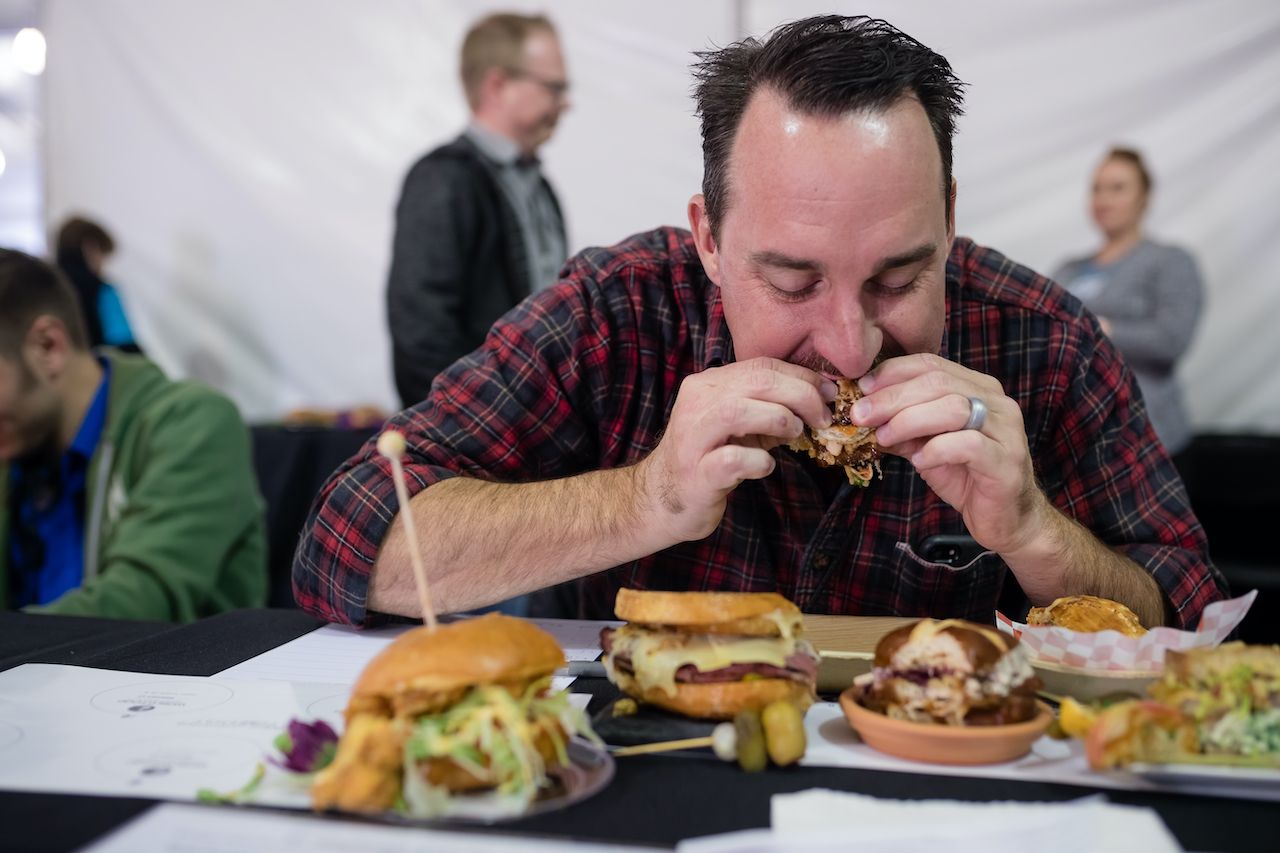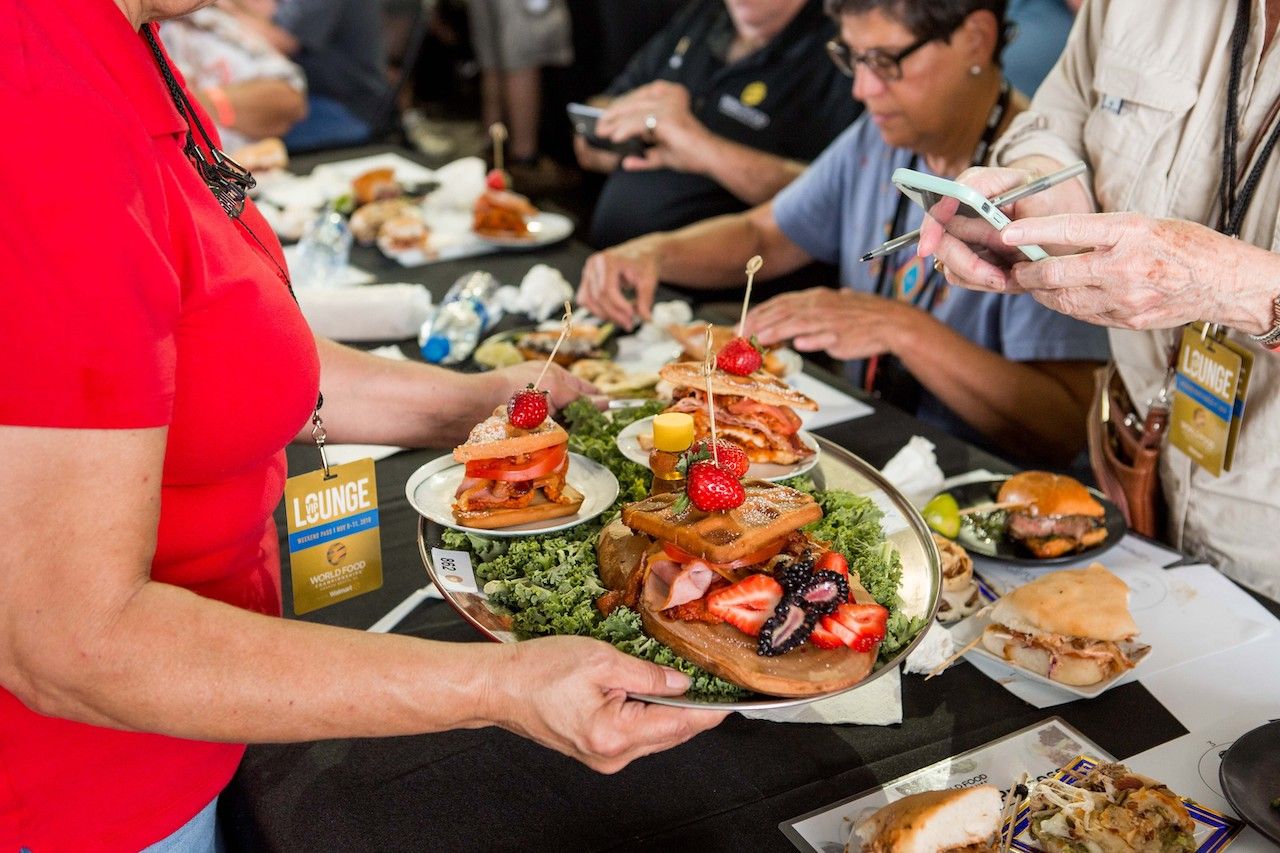Judging from the showmanship and drama of shows like Chopped and Beat Bobby Flay, most viewers could be forgiven for assuming that being a food competition judge is all about sampling delicious meals. London-based food writer May Chong knows better.
Chong, who has judged the International Chocolate Awards and the Peruvian Young Chef of the Year competition among others, recalls eating “cold runny polenta in between tastings to reset our taste buds,” tasting food that had gone rancid, and even getting sick of the taste of chocolate.


